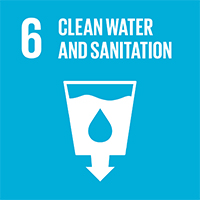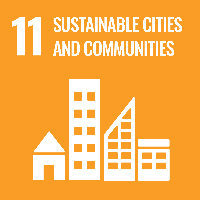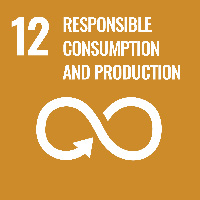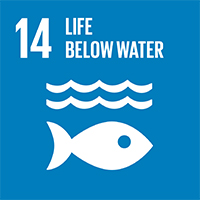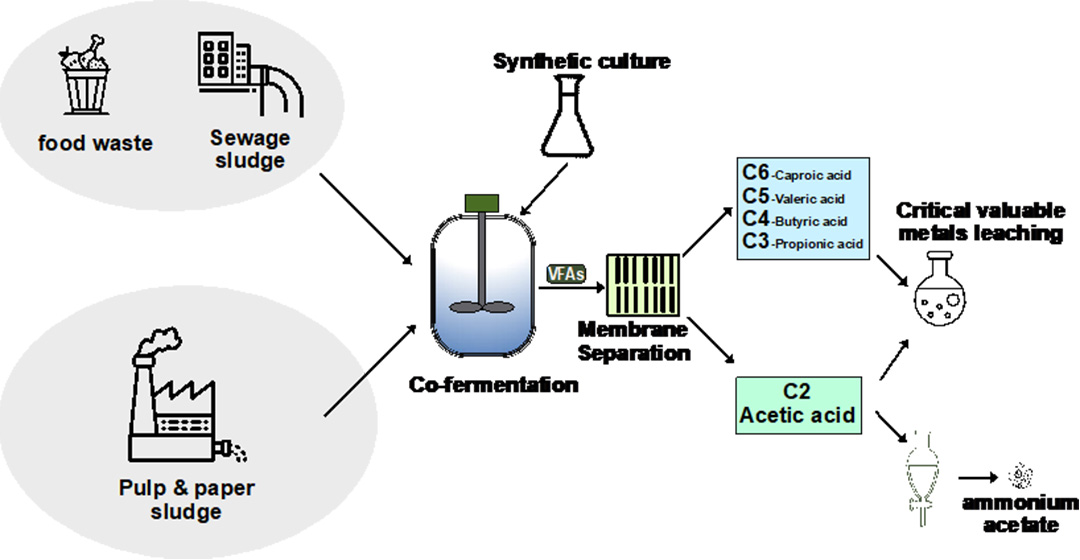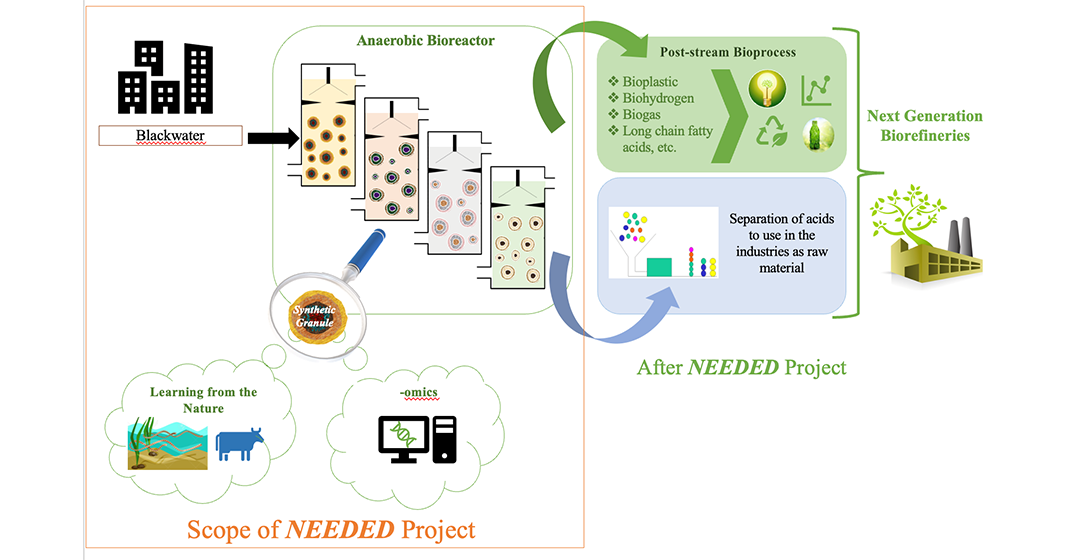Environmental Biotechnology
Environmental biotechnology can bioremediate contaminated environments such as water, soil, air by using environmentally friendly processes. Our research focuses on developing sustainable bioprocesses for water and wastewater treatment, transition to biorefinery concept and bioremediation for public health by using process engineering, microbial processes, nanotechnology, and nature-based solutions.
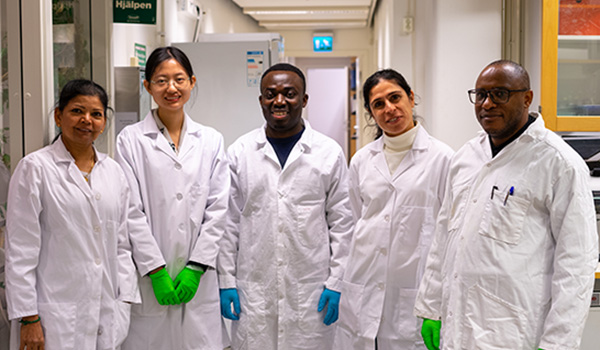
For wastewater, our team focuses on nature-based solutions to reduce pollutants coming from different sources such as stormwater and transition of wastewater treatment plants to resource recovery facilities. We contribute to the field by designing new bioreactors and developing semi-synthetic cultures for tailor-made production of o.a. volatile fatty acids and polyhydroxyalkanoates. To design semi-synthetic cultures, we gather information from natural and engineered ecosystems by using cutting-edge technologies such as omics tools. For water purification, we develop biobased nanoparticles for sustainable treatment solutions. In addition, we apply our resource recovery knowledge to natural ecosystems for phosphorus and heavy metal recovery from eutrophic environments.
Wastewater based epidemiology is another research area of our team. We monitor SARS-CoV-2 surveillance in wastewater and develop methods for other biomarkers such as antimicrobial resistance genes.

